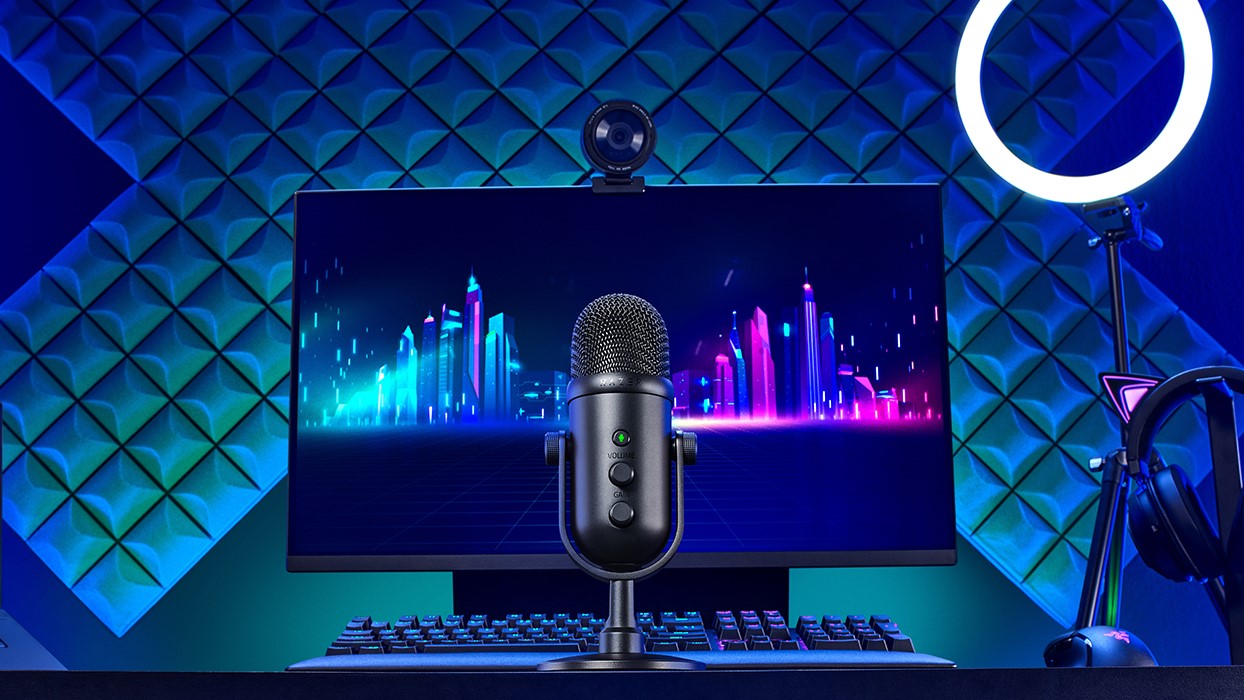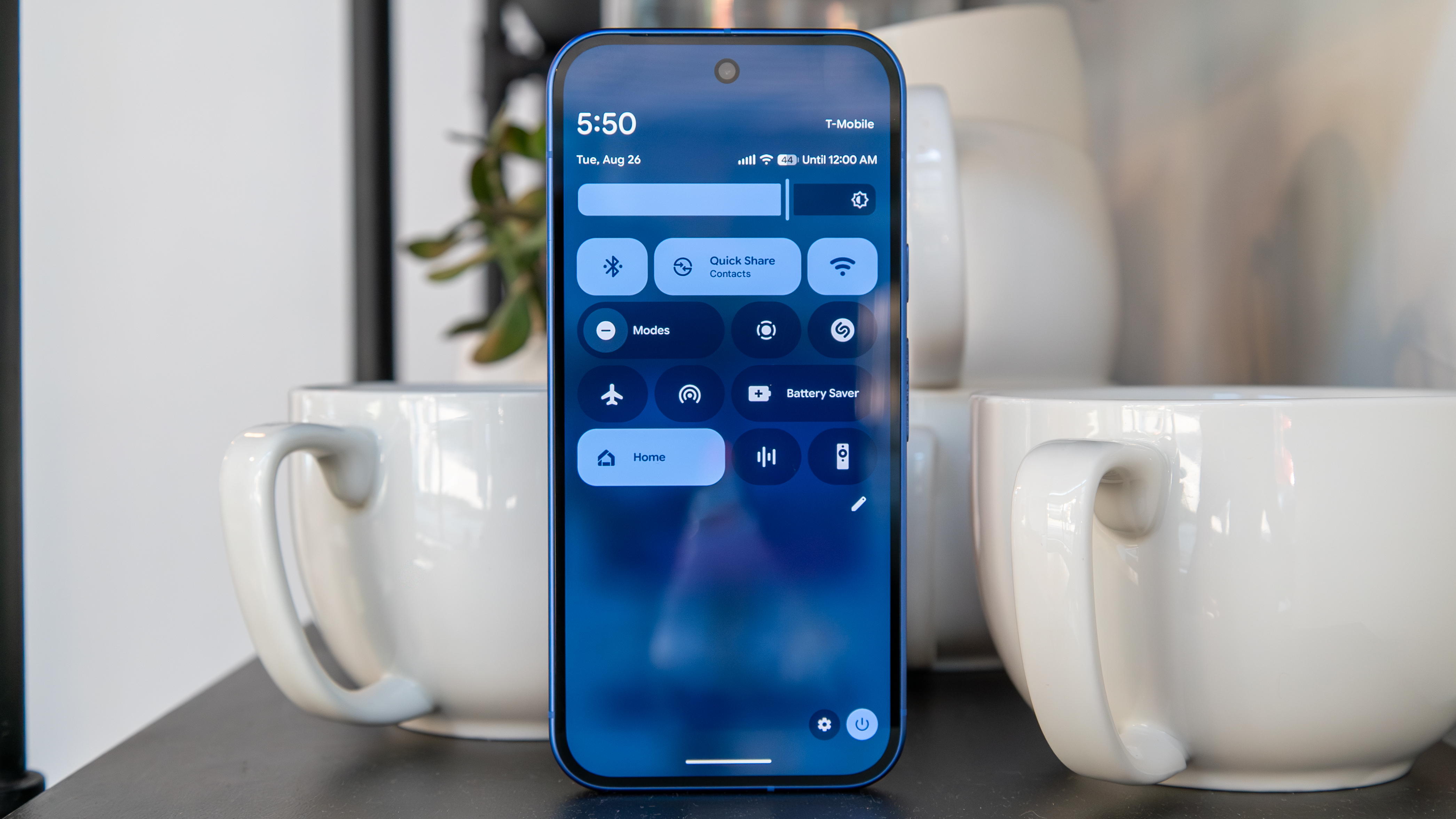Android Central Verdict
Razer's Seiren V2 Pro brings high build quality but limited recording versatility to the table. While it falls squarely in line with other Razer products' premium feel, it doesn't quite hit the same marks for premium functionality. Unlike some other USB microphones, it only offers one polar pattern for recording, and it's worse off for it. That said, it ships with some really solid software and catches deep voices really well.
Pros
- +
Mute indicator
- +
Compact shape
- +
Plug-n-play
- +
Razer Synapse offers a solid audio mixer
Cons
- -
More expensive than the competition
- -
Synapse can be difficult to set up
- -
Limited offering of polar patterns
Why you can trust Android Central
Razer's made a name for itself as one of the go-to brands for gaming — and content creation. Its hardware offerings are high quality and reliable for anyone looking to jump into live streaming, podcasting, or making video content. Razer's track record aside, USB mics are a competitive field. Not only do other players like Elgato and Blue bring some heavy competition to the table, but many of them come at a similar price point and offer lots of features, so how does Razer's Seiren V2 Pro stack up?
Razer Seiren V2 Pro: Price and availability
Razer released the Seiren V2 Pro in September 2022, and you can find it at most major tech and audio retailers. On most storefronts, including Razer's, it'll set you back $150. That said, retailers like Best Buy often have sales for USB microphones, so you might be able to pick it up at a discount.
What's good
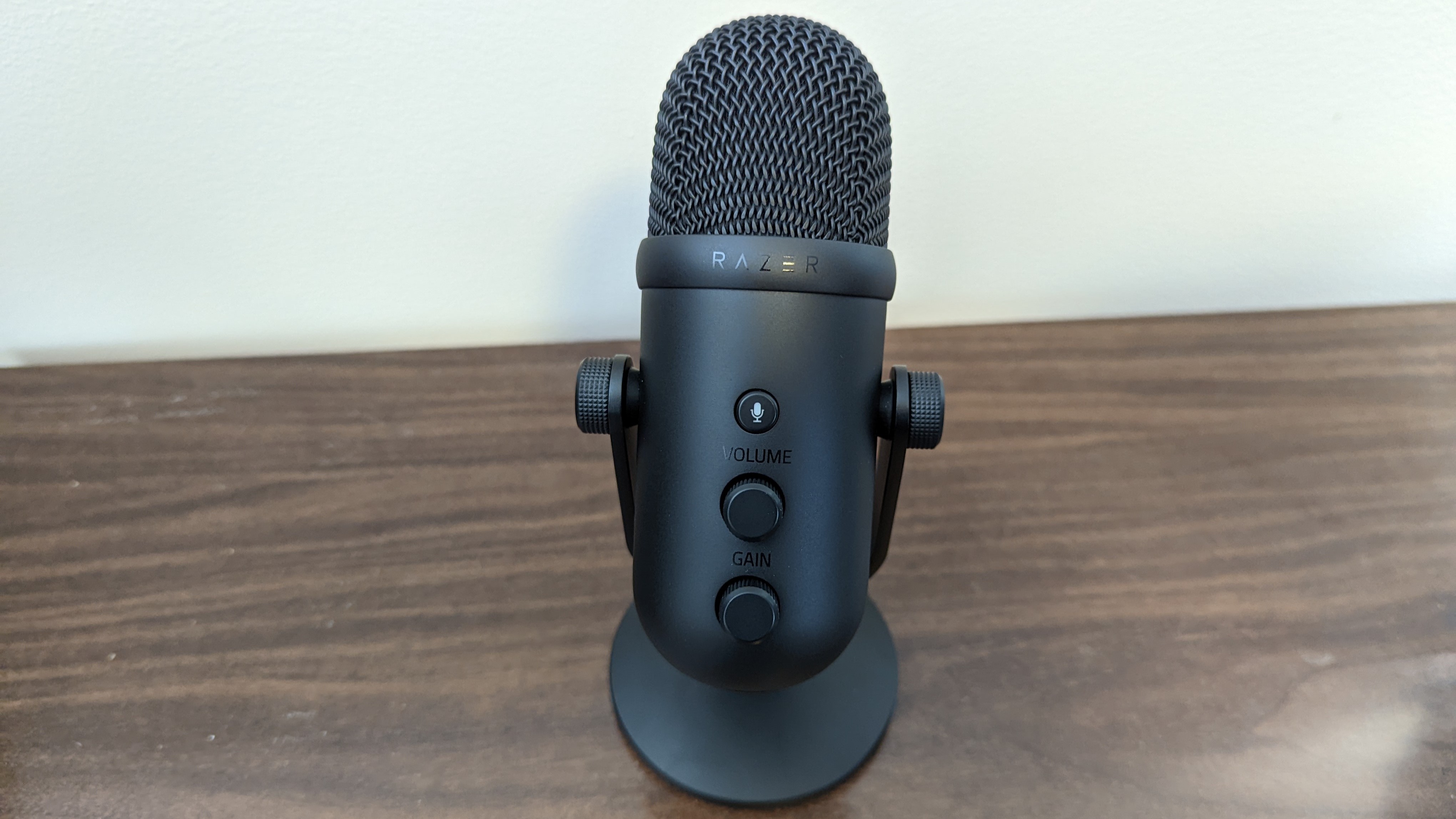
| Category | Spec |
| Weight | 1.1lb. |
| Dimensions | 8 x 2.2in. (with stand), 6 x 2.2in. (without stand) |
| Frequency Response | 20Hz - 20kHz |
| Sample Rate | 96kHz |
| Polar Patterns | Cardioid |
| Ports | USB Type C, 3.5 mm jack |
Don't let its size fool you — the Seiren packs a lot of heft. And with it, some really nice build quality. Like all of Razer's products, the Seiren V2 Pro feels great. Buttons are clicky, gain and volume knobs are smooth and accommodate precise turns, and the USB A to USB C cable head fits securely into a gap in the back of its head. The build quality here is a cut above the rest, regardless of audio quality.
When it comes to voice recording, though, it's something of a mixed bag. It doesn't quite hit the same boxes across the board that the Blue Yeti does. That said, as someone with a very deep voice, it does pick up bass tones more fully. In fact, it does such a better job of picking up my register that I had to adjust some recording settings when I first started using it in my recording software and on my PC.
Speaking of recording settings, Razer's hardware configuration tool, Synapse, includes some pretty useful mixing tools once you get a hang of the tricky software. Once you wrap your mind around it, it offers a premium audio mixing experience not just for content creation but for day-to-day life. Plus, the difficult setup is simple enough that there are plenty of tutorials on YouTube to help you out if you get stuck. Despite the mic's shortcomings, Synapse is an amazing piece of software.
What's not good
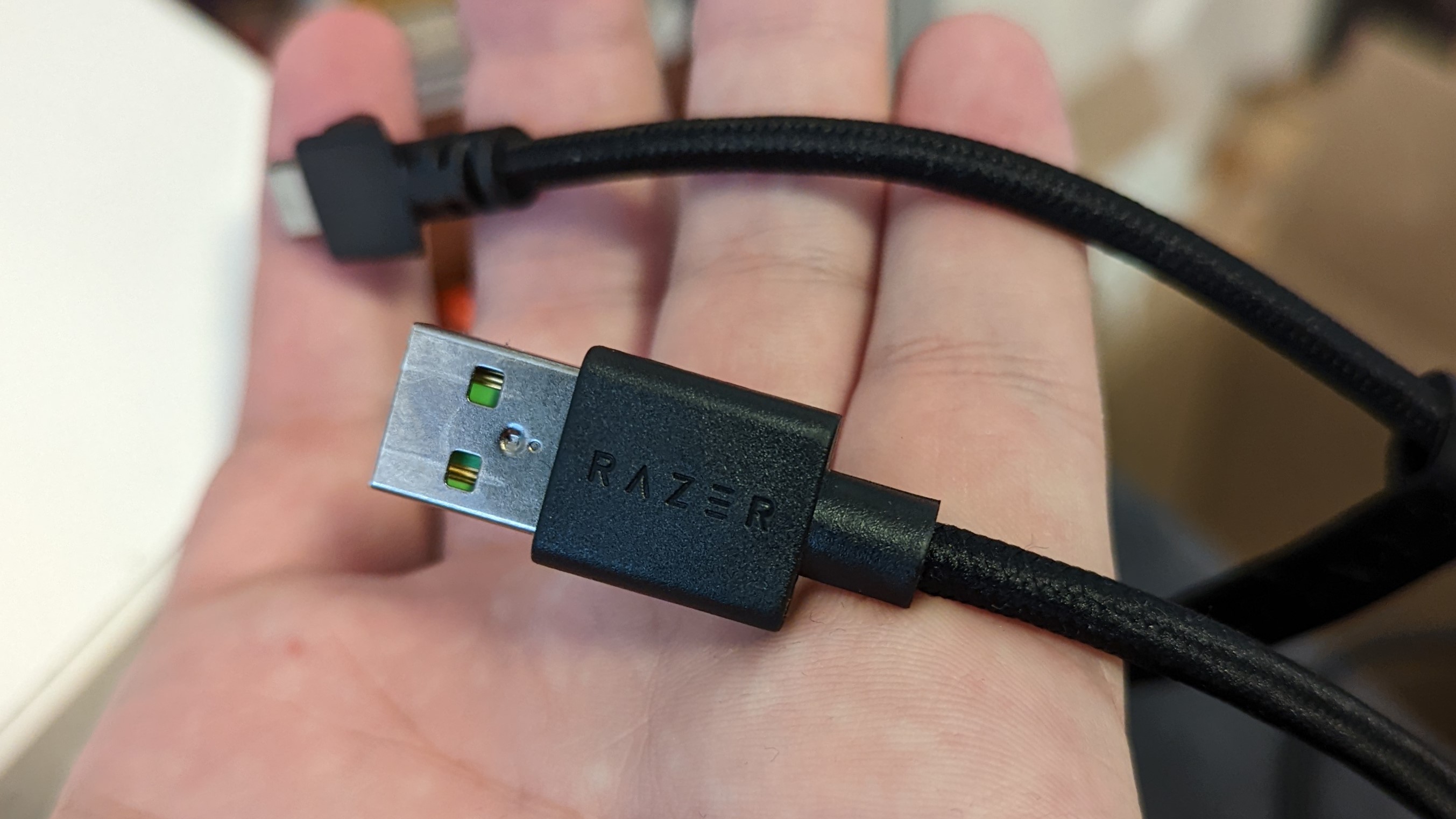
Razer's Synapse software's a useful tool, but it can be a bit tricky to set up; essentially, you're just thrown into the deep end with the software. The notable lack of tutorials might leave someone who doesn't have previous experience working with audio mixers in the dark. The Seiren V2 Pro's also missing some creature comforts I've come to expect from other USB mics, like my Blue Yeti, namely, the polar pattern adjustment knob. The Seiren V2 Pro only features a cardioid recording setting, making it less versatile.
Deeper sounds aside; it doesn't fully deliver on audio quality either. It's not too far shy of the Blue Yeti, which I'm used to using, but the audio felt a bit duller coming from the Seiren. That's not the biggest problem for me since my voice is relatively deep, but if you're working in a higher register, you might need to spend some time in your recording software to figure out if there's a workaround. That said, the difference between the Seiren and other mics is relatively small, so don't let this be a dealbreaker.
Get the latest news from Android Central, your trusted companion in the world of Android
Creating content with the Seiren V2 Pro
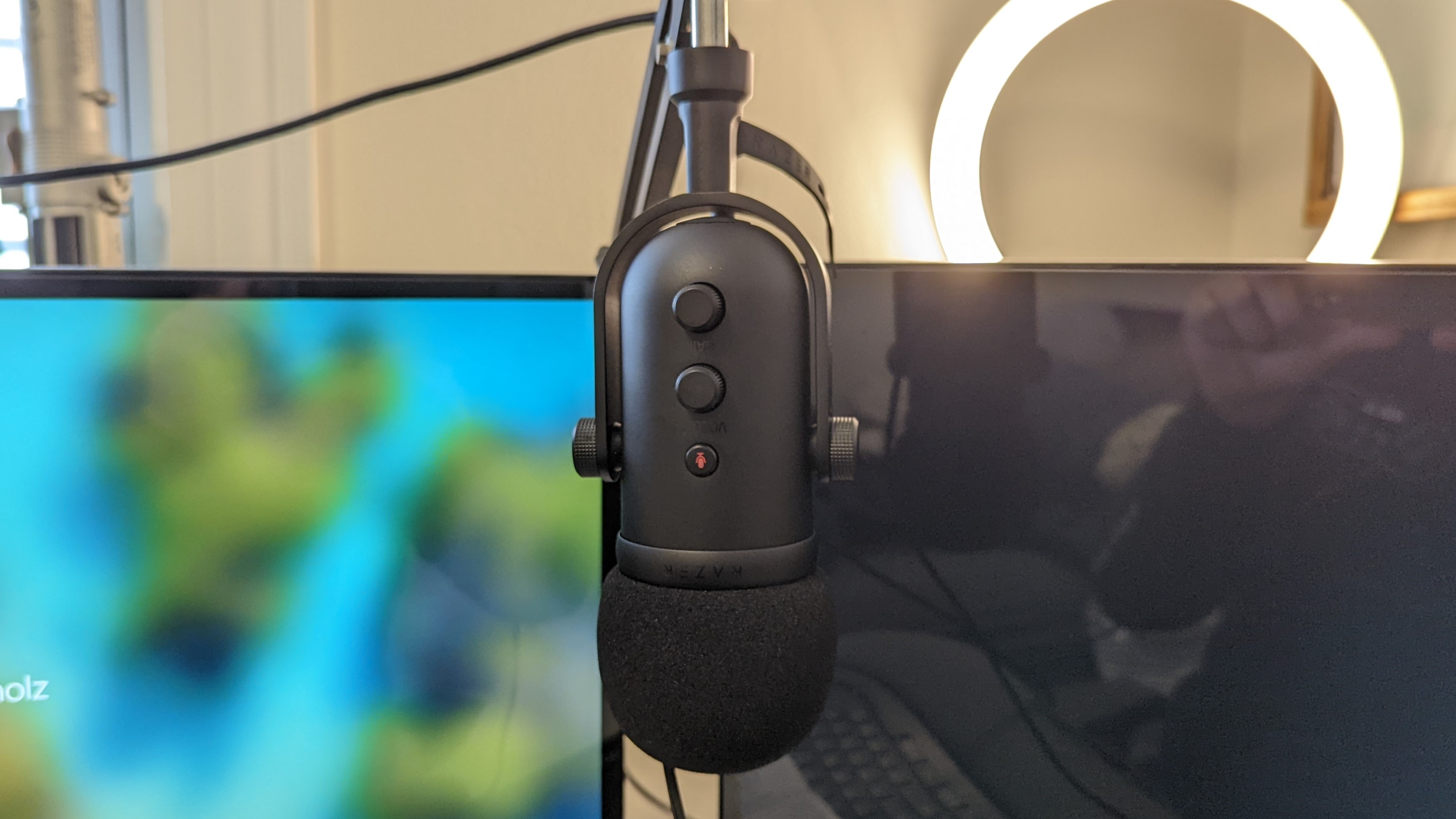
Creating content with the Seiren V2 Pro is a breeze. Like other USB mics, the hardware's easy to set up and use; you just need to plug it in and select it in your recording software's microphone settings. And once you get a hang of it, the mixer built into Razer's Synapse software is a really useful tool to help get a better grasp over the audio mix and quality of your content.
Razer's suite of software also lets you save settings for your mic in the cloud in case you need to use the Seiren on different devices. The only difficulty I've encountered with the actual process of creating content is that the Seiren V2 Pro's gain adjustment is a bit more sensitive than I'm used to, so it might take a little extra fine-tuning to get the perfect sensitivity.
The competition
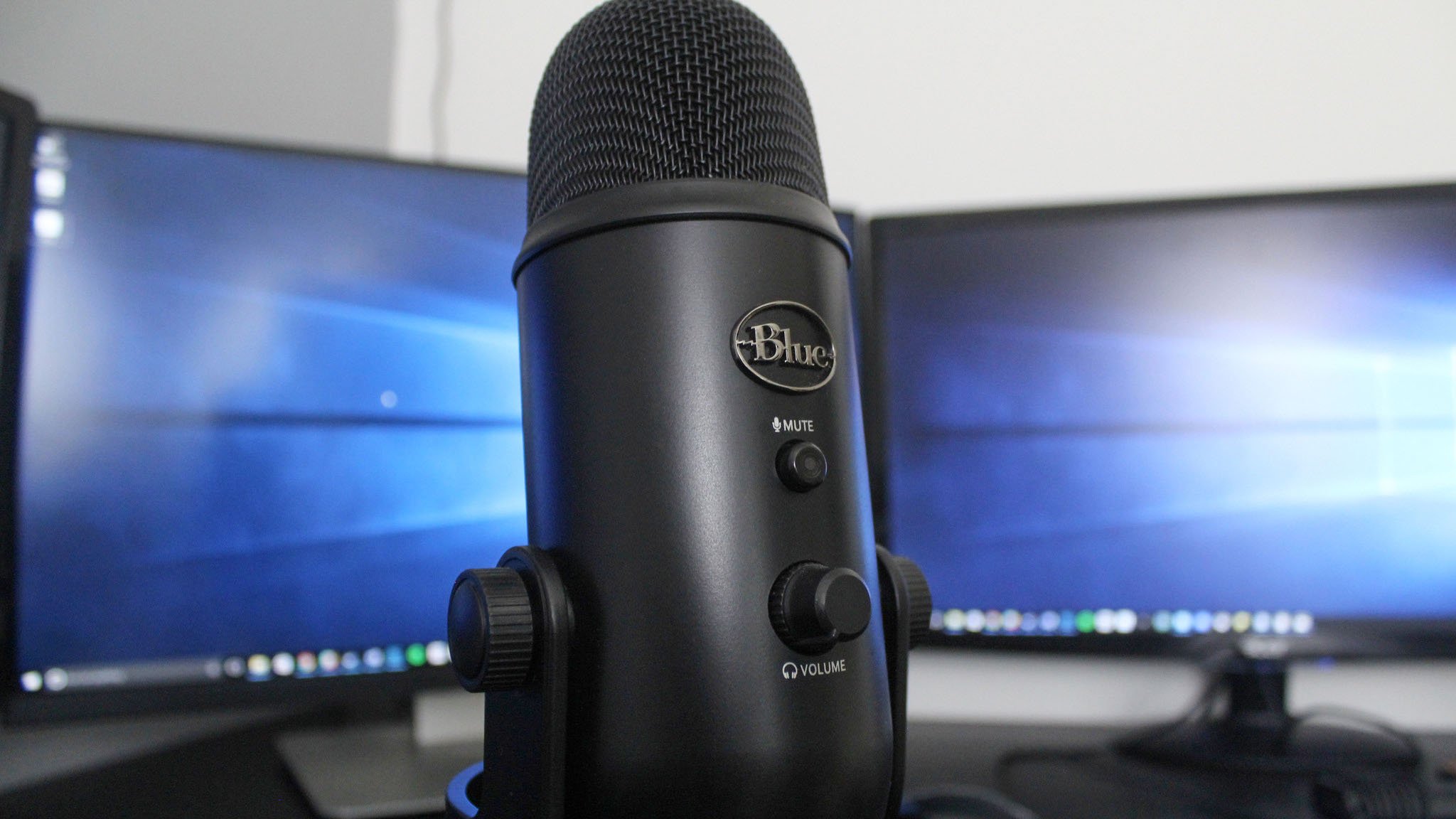
It's nearly impossible to discuss any USB microphone without addressing the elephant in the room; Blue's line of Yeti microphones. These mics have all but cornered the market thanks to their recognizable branding and approachable form factor.
I usually use one Blue's Yeti mics for my day-to-day content creation, meetings, and interviews. It's a reliable and predictable standard that always delivers solid results. I'm pleased to say that the Seiren V2 Pro is just as reliable and easy to use. The audio qualities don't quite match up, though.
That's not because the Seiren's a bad microphone, but because it lacks the Yeti's versatility. It does pick up deeper sounds much better, but across the board isn't as effective. The Seiren V2 Pro doesn't have the ability to switch between recording styles like Cardioid or Stereo that the Yeti does, which makes it harder to get exactly what you want unless you're recording under ideal conditions for the microphone. It's certainly not a dealbreaker, and if you're working with a boom arm that can't support a mic as hefty as the Yeti, the Seiren's a great pick if you don't want to sacrifice much audio quality.
When it comes to style and build quality, however, Seiren's got the Yeti beat. Not only is the mic itself sleek and compact, but it ships with a high-quality USB cable that fits securely into the back of the Seiren and a pop filter. Thanks to the cable's specially-designed USB Type C head, it's much harder to snag the Seiren on stuff like a monitor or get it tangled in your boom arm.
Should you buy the Razer Seiren V2 Pro?
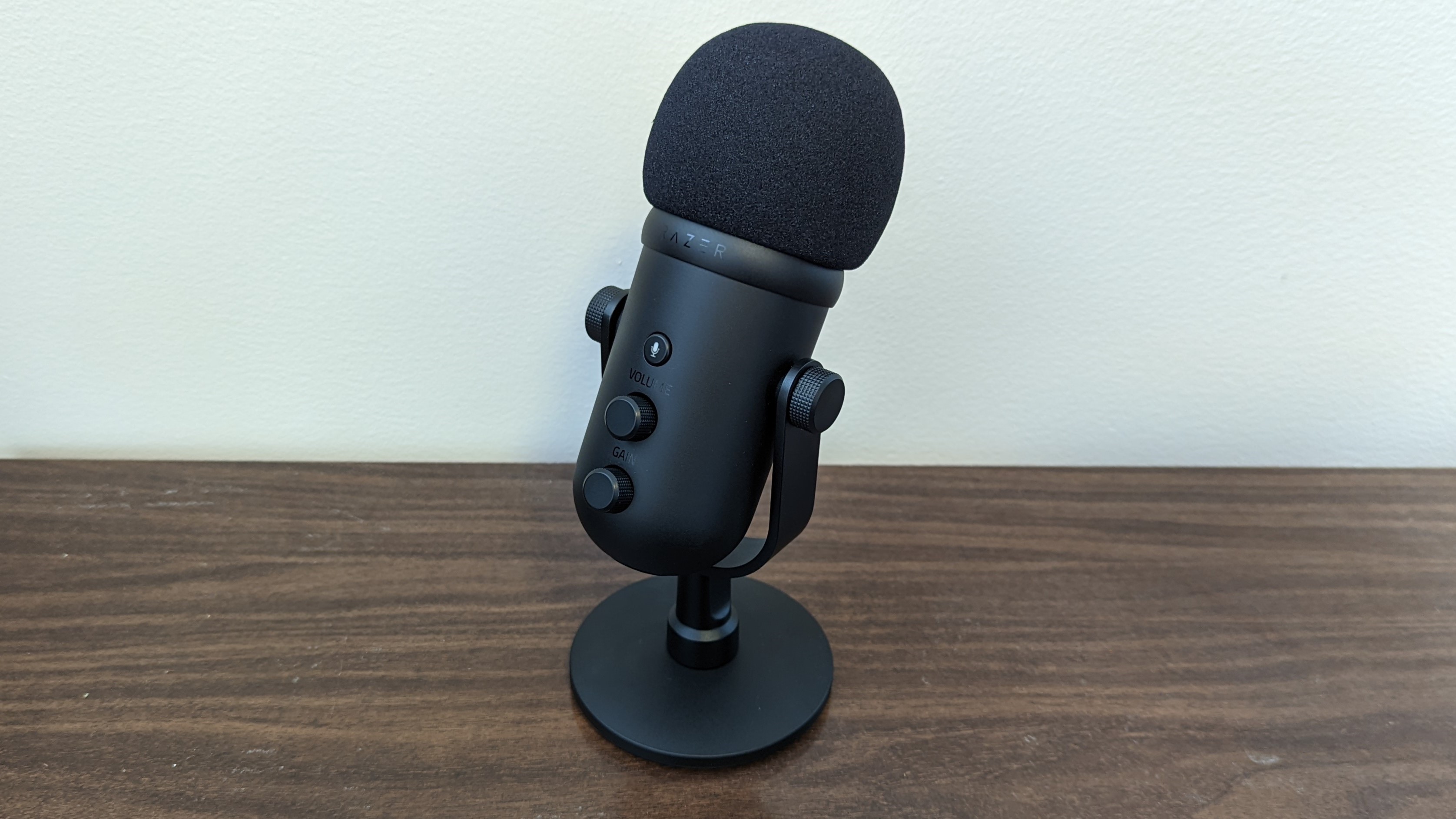
The Razer Seiren V2 Pro loses some important modularity compared to its competition, which can make it hard to recommend for anything other than the standard, one-person desk setup. That said, its compact size and sleek shape is a welcome change from the beefy Blue Yeti that I'm used to.
Frustrating lack of features aside, it's a decent microphone that can go toe-to-toe with any other USB mic. It's great for online content creation, like live streaming and podcasting. If you're already working with other Razer products, it's a no-brainer to pick up the Razer Seiren to take advantage of Razer's suite of features. If you're looking for a good deal on a solid mic, though, you might want to look elsewhere.
With the V2 Pro, you're paying for high build quality, brand name, and Razer's suite of software features. Unfortunately, you're not necessarily paying for the versatility that other mics in this price range have on the hardware end. It's actually a great mic, but at a retail price of (USD) $149.99, it's not an ideal first choice, especially if you're not interested in spending time setting up software.
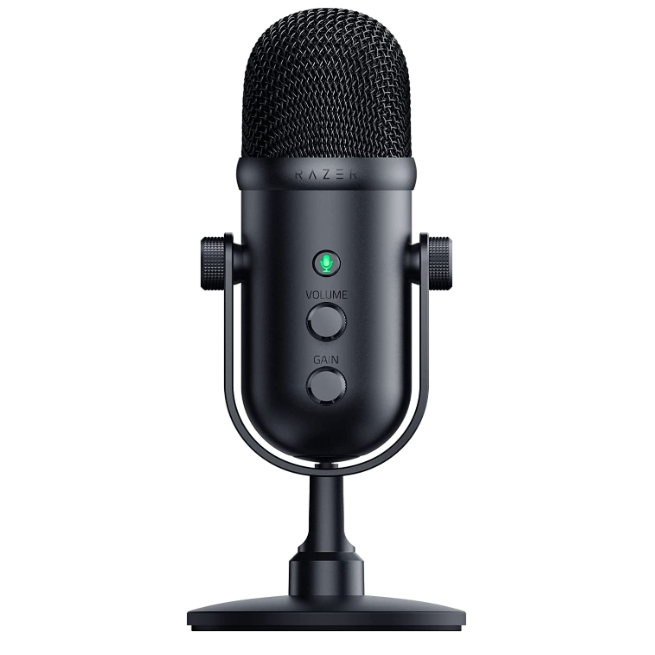
A solid choice, just not the best
Razer's Seiren V2 Pro offers most of the bare basics you can expect from a USB mic. It does a great job of catching low tones and voices and ships with a solid audio mixer. It doesn't quite hit the high benchmark of other mics in its price range, but it makes up for it in build quality.

Charlie's a freelance contributor at Android Central from Milwaukee, WI.
